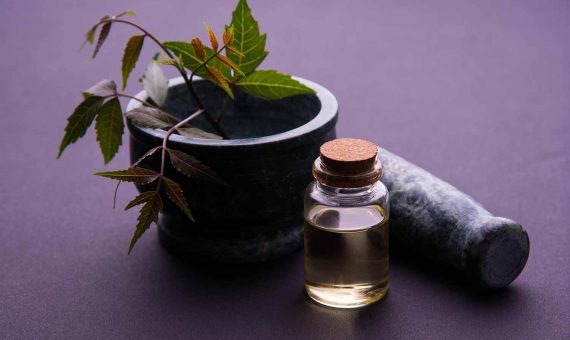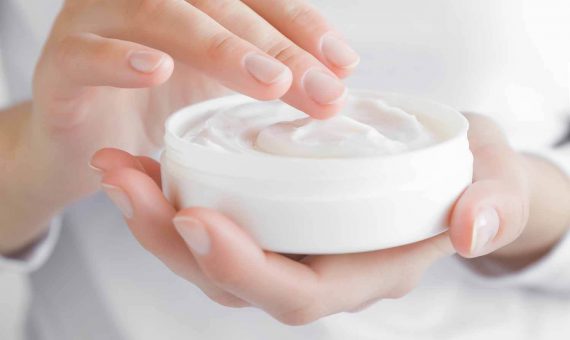Currently Empty: $0.00
3 Traditional Uses of Senna Leaves for Skin
Healthy-looking skin is your first impression to the world. Healthy skin not only gives you confidence, but it is also the first line of defense for most infections. If you are looking for a natural way to improve your skin’s health, senna leaves are a great alternative to the traditional skincare products sold at beauty stores.
Although they are not the most well-known plants for natural remedies, senna leaves have been used for medicinal purposes since the ninth century. Senna leaves have three properties that improve common skin conditions and maintain healthy skin:
- Anti-inflammatory
- Antibacterial/antifungal
- Regeneration
What is Wild Senna?
The senna leaf is an herb from the cassia senna plant, but I prefer the common name the candlestick plant. Wild senna leaves were first discovered in Northern Africa and are now commercially grown in China and India.
Senna leaves are approved by the Food and Drug Administration (FDA) and are widely used as an herbal remedy to relieve gut issues such as constipation. Senna leaves are also potent fighters in the quest for healthy-looking skin.
Senna Leaves Reduce Inflammation
The senna plant contains potent elements that help reduce inflammation. The traditional use of senna leaves can be traced to Arabic cultures in the ninth century, where it was brewed in teas and used as a laxative. Doctors have been using the FDA-approved senna leaves traditionally to reduce inflammation and calm common gut issues.
Reducing inflammation is great for overall health, but these properties can also improve skin health. Skin inflammation commonly found in acne and eczema can be reduced with the natural ingredients found in senna leaves.
The essential oils and tannins in senna leaves are the magic ingredients that help improve common skin inflammation such as blemishes, eczema and other skin flare-ups. The anti-inflammatory properties of the senna leaf help improve:
- Acne
- Eczema
- Hemorrhoids
- Skin inflammation
- Constipation
- Abdominal cramping
Senna Leaves Are Strong Bacteria and Fungus Fighters
The senna leaf has high antibacterial and antifungal properties. For minor cuts or burns, preventing and killing bacteria can help prevent skin infections. Years ago, Native Americans used the senna root to help heal open wounds. In traditional Chinese medicine, the senna leaf was used for many purposes, including the prevention of bad breath caused by bacteria.
Senna leaves also contain acetone and ethanol compounds, which are great natural fighters against acne. These elements help reduce the secretion of sebum oils that cause acne.
Senna leaves are also used commonly for treating ringworm. In fact, the senna plant holds the nickname “the ringworm bush” because of its powerful antifungal properties. These antibacterial and antifungal properties found in senna leaves are good for treating:
- Acne
- Ringworm
- Intestinal worms
- Insect bites
- Colon cleansing
- Boosting immunity
- Preventing bad breath
- Preventing the multiplication of bacteria
Using Senna Leaves for Regeneration
Throughout history, senna leaves have been used to improve skin health by promoting the regeneration of skin cells. The natural properties found in senna leaves increase cell regeneration, which is why they are used to heal cuts and wounds. Chrysophanic acid found in senna leaves helps to heal and reduce the swelling and redness in skin burns.
Most beauty product companies today promote their products for skin regeneration, anti-aging or collagen growth benefits. The elements found in senna leaves promote these benefits too. Some companies already use the magic of science to incorporate senna leaves in their products.
Senna Leaves for Hair
These regeneration components found in the senna leaf can also improve the scalp’s condition and the shine and thickness of hair. The leaves are often used to combat hair and collagen loss, along with promoting skin renewal. They also help with fluid balance, which is a key to great looking skin.
Senna leaves also produce natural highlights in your hair, another interesting beauty benefit. Just apply senna leaves for a longer time on your hair, and the lighter it gets. Although I haven’t tried this cheaper alternative to the hair salon, it might be worth exploring.
How Does Senna Work Within the Body?
The powerful components in senna leaves have been used in homeopathic medicine for centuries, and doctors today commonly prescribe senna leaves because they are fast and effective.
The key ingredients that make senna leaves work within the body are the active compounds called sennosides. The sennosides irritate the gut lining and stimulate the bacteria found in the colon. This can be a potent laxative. Interestingly, you’ll find that grazing animals avoid this plant for this reason.
For skin conditions, the essential oils, resin and tannin present in senna leaves work to reduce inflammation. Specifically, when an acne flare-up occurs, it is due to an over secretion of sebum, which blocks pores. The high antibacterial properties of the senna leaf reduce the production of sebum, resulting in less acne.
Most people consume the leaf of the senna plant for homeopathic purposes, but the fruit and root of the plant can also be consumed. The fruit may have milder effects on the body compared to the leaf and is recommended for people who have a sensitive system. If you are interested in trying senna leaves, there are many products available.
Senna leaves are usually consumed and purchased in these forms:
- Tablet or pill
- Tea Capsule or Tablet
- Syrup
- Powder (for skin and hair)
How Quickly Does Senna Typically Take to Work?
The senna leaf is a powerful herb that gives you immediate results for digestive issues. Taken as a laxative, the senna leaf can work in as little as ten minutes but typically activates within six to 12 hours. It is recommended to take senna at bedtime if you’re using it for activating bowel movements to alleviate constipation and other gut issues.
Using senna or other natural products for skin conditions such as eczema and acne will take a longer time to see results. Senna leaves are not used directly on the skin but are incorporated into products or used with other ingredients, such as oils, to make a paste that is then applied to the skin.
Remember, skin maintenance is a long-term commitment, requiring a consistent skin regime. A commitment to a morning and night skin routine is vital to achieving healthy- looking skin.
It is also a good reminder that common skin conditions need to be treated with a holistic view. Other factors in your life and environment can contribute to unhealthy skin. Skin conditions can be affected by slight variations of multiple factors including:
- The quality of your skin products
- How diligent and consistent you are in using skin products
- Dietary and lifestyle choices
- Stress levels
- Water intake
Can I Use Senna Every Day?
Although senna leaves are primarily used to relieve temporary conditions, they can be used every day. They are also safe for children over the age of two but only on a short-term basis. Senna leaves are not recommended for:
- Long-term usage
- If you are pregnant
- Weight loss
Before consuming senna leaves, as with any new remedy you are trying for the first time, be conscious of any possible allergic reactions, speak with a health professional first and understand any side effects.
Senna leaves are not recommended for weight loss. Many diet products promote senna in their teas as one of the ingredients for losing weight. Because senna is commonly used as a laxative, any weight loss would only be short-term, and the side effects to your colon would not be worth it.
Long-Term Effects
There are side effects if you choose to use senna leaves longer than for short-term relief. In fact, doctors recommend not using senna leaves long-term. The American Herbal Product Association only recommends using the fruit of the senna plant for long-term use since its effects are milder.
A darkening of the colon lining can occur with long-term use. You should be aware of any unusual side effects that occur after consuming senna leaves. If you experience unusual digestive symptoms such as diarrhea or watery stools after taking Senna, it is best to consult your doctor.
Why Choose Natural Ingredients for Skincare
More people are choosing natural cosmetic and skin care products versus synthetics. There are several reasons why natural ingredients such as senna leaves are a popular alternative to man made products.
- Synthetic products are heavily processed, and the manufacturing process can lead to significantly more pollution than the use of natural ingredients that require less processing or mining.
- Chemicals found in synthetic skincare products contain chemicals that may damage plants and animals in the ecosystem if they seep into the ground or through waste water.
- Natural ingredients are safer to use than synthetic skincare products. When applied to skin, the ingredients deep into the skin, and manmade chemicals travel throughout the body as foreign elements that could lead to long-term damage or illnesses.
- Cosmetic companies maybe required to use animal testing in the research and development of products before they are approved for sale. Animal testing is considered unethical and cruel by many.
- You can’t mimic nature. The powerful ingredients in senna leaves just work better than any ingredient man could make in a lab.
- Artificial fragrances can irritate skin.
Conclusion
You are constantly shedding and making new skin cells, so a consistent care routine is important. Your skin is also the first line of defense for infections. Senna leaves are a good and natural alternative to treat common skin conditions, heal cuts and wounds, and promote healthy skin.
I recently added senna leaves to my skincare routine, and I discovered this natural approach may be a good way to improve the overall look and health of the skin. By choosing a more natural approach to my skincare routine, I made a real and meaningful change to my lifestyle.
Senna leaves have also been used traditionally for treating common skin conditions, healing cuts and wounds, and improving skin health. The senna plant is a great homeopathic alternative for treating common skin issues and improving the overall look and health of your skin.
The senna plant has been prescribed by doctors as a proven aid to naturally relieve common colon issues, such as constipation. Tapping into the natural remedies built into senna leaves can also treat common skin conditions and help with skin renewal. I recommend trying senna leaves as a healthy alternative for improving skin health.







